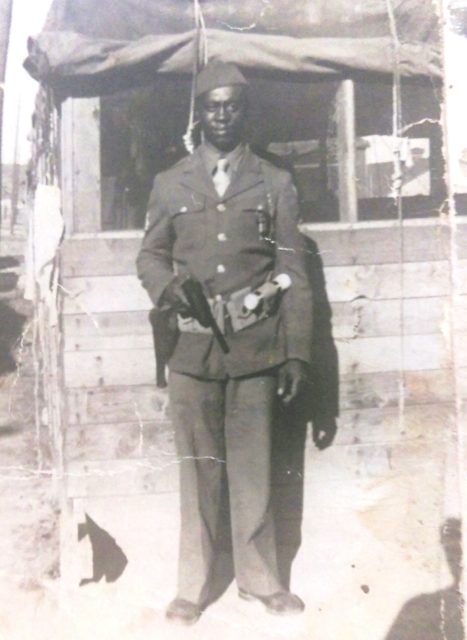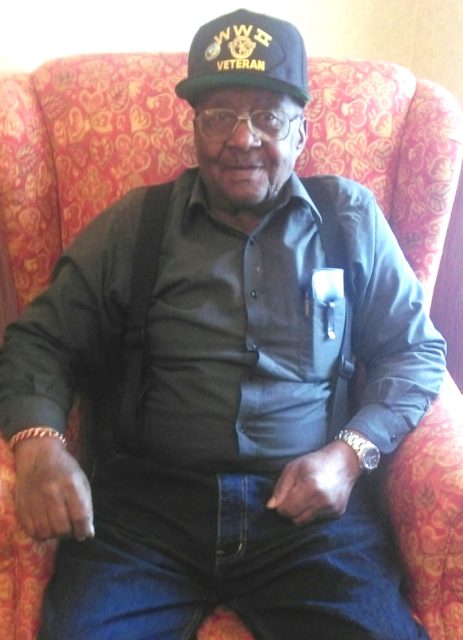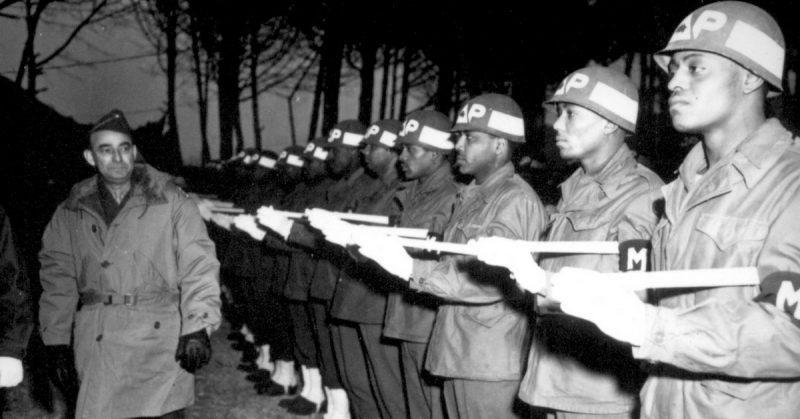War History online proudly presents this Guest Piece from Jeremy P. Ämick, who is a military historian and writes on behalf of the Silver Star Families of America. For more information on the Central Missouri Honor Flight program, please visit their website.
While serving in North Africa and Italy during World War II, Fay Holt did not believe his service to the country to be of any lasting significance. Decades later, he explained during a recent interview, when programs such as the Central Missouri Honor Flight began recognizing the service of local veterans, he was awestruck by their efforts to commemorate his contributions.
“I didn’t think that what I did was all that important, but I got a bunch of letters of appreciation on the (honor) flight from some big shot politicians that said that it was,” the veteran grinned.
Born in 1920 in the nearly forgotten Callaway County, Mo., community of Dixie, Holt finished the eighth grade at a local schoolhouse and then went to work on the farm of a local family until receiving his draft notice in 1942.
“The family that I was working for tried to get me a deferment because they needed me to work on the farm.” Chuckling, he added, “But I guess Uncle Sam needed me a lot more than they did.”
Inducted into the U.S. Army at Jefferson Barracks, Mo., on July 24, 1942, the draftee was sent to Ft. Riley, Kan., and completed his boot camp at a training site known as “Camp Whitside.” From there, he received an assignment to Company A, 743rd Military Police Battalion—an all-black unit that had been formed only weeks earlier.

The young soldier remained at the camp for the next several months, learning how to function as a military policeman and performing guard duty around the post. However, in August 1943, the battalion received orders for overseas service and took a train to the East Coast, where they boarded a troop ship that brought them to their new duty station in Algeria.
“It was pretty much just guard duty as usual (in North Africa),” said Holt. “I was lucky because I never had to shoot anyone.”
As the veteran explained, after several months in Algeria and later at a site in Tunisia, the battalion again boarded another troop transport and sailed for Naples, Italy.
“I can remember it still being pretty hot when we got to Italy, with mortars and such exploding nearby,” Holt affirmed. “The one thing that sticks out in my mind was us running off the ship with our shotguns and having to take cover,” he said.
Though the soldier was never informed of the details of the skirmish that was taking place upon the battalion’s arrival in Italy, he recalled that the situation soon “settled down,” followed by he and his comrades traveling to their new duty station to resume their responsibilities as military policemen.
As they had done in North Africa, the men of the 743rd Military Police Battalion continued performing security and traffic patrols, but it was their guard duty, Holt said, that placed him in one of the most stressful situations he ever experienced while overseas.

“We were pulling a lot of guard duty in a compound that held Italian and German prisoners of war,” Holt said. “One time, while I was guarding one of the gates to the compound, an Italian guy came up and wanted to get inside; he was quite persistent about it.” He added, “I was ready to shoot him (because of his aggressive approach) but he turned around and walked away, and I was sure glad that he did.”
When the war in Europe ended in May 1945, the soldiers of the 743rd MP Battalion believed that their next destination would be somewhere in the Pacific in support of the planned invasion of Japan. However, in the months that followed, Japan surrendered, and the battalion made their return trip to the United States in November 1945.
Receiving his discharge at Jefferson Barracks on December 1, 1945, Holt returned to Mid-Missouri and “drove a truck for several years,” he said. He then went on to spend a couple of years as a police officer with the New Bloomfield Police Department before going to work for the Department of Corrections, from where he retired in 1985 after 26 years of employment.
The father of six children, Holt enjoyed looking through many of the documents and photographs from his days in the military during a recent interview, pausing to point at a picture of himself in uniform and exclaiming, “I was a young man then but look at me now!”
Reflecting on the more than two years he served overseas; Holt jokingly recalled that all of his journeys to various locations in North Africa and Italy were made by ship, and it was not until many years later that he would first set foot on an airplane as part of the Central Missouri Honor Flight.
“I had never been any higher than a treetop my entire life,” Holt lightheartedly remarked. “When we did the Honor Flight (in November 2013), that was the first time I had ever been on a plane, and they let me sit by the wing over one of those big engines, and I got to see it all—what a great time!”
In describing his experience while visiting the nation’s war memorials as part of the trip to the nation’s capitol, Holt noted, “It seemed like all of this didn’t happen until we were too old to do anything about it.”
He added, “But it was a wonderful trip, and it seemed like we were always on the move to get to the next place—it all happened so fast. But I’m glad I got to see everything because at my age it was certainly a once in a lifetime opportunity.”
